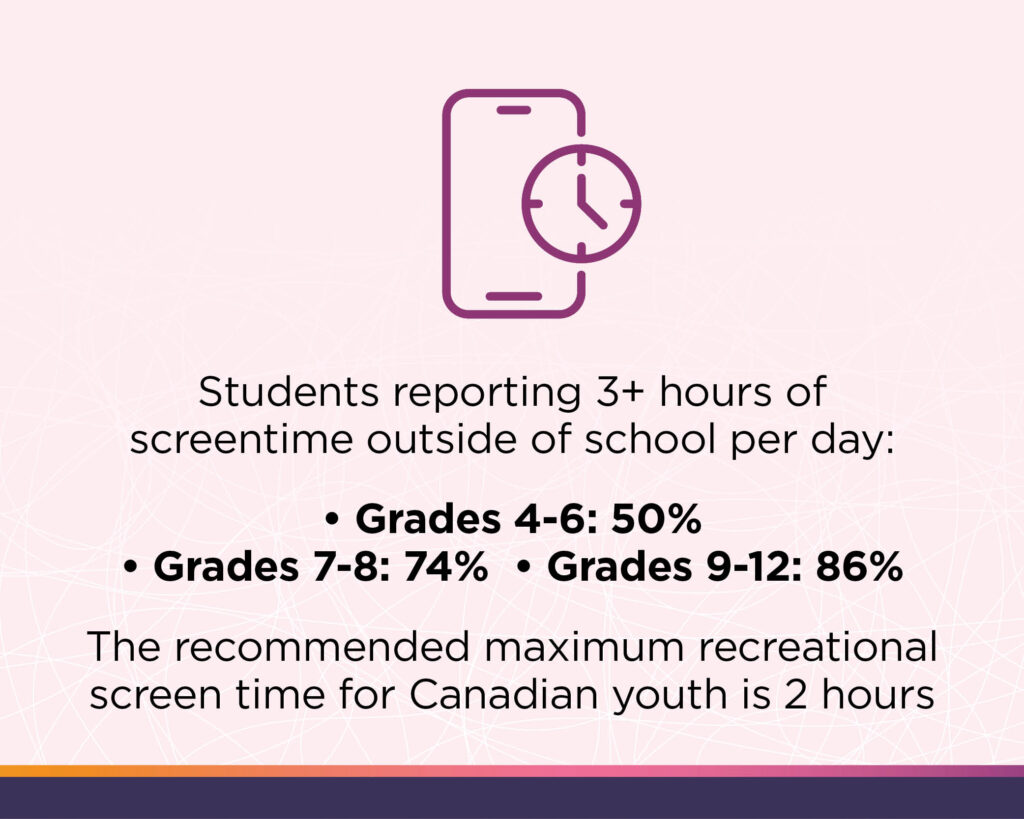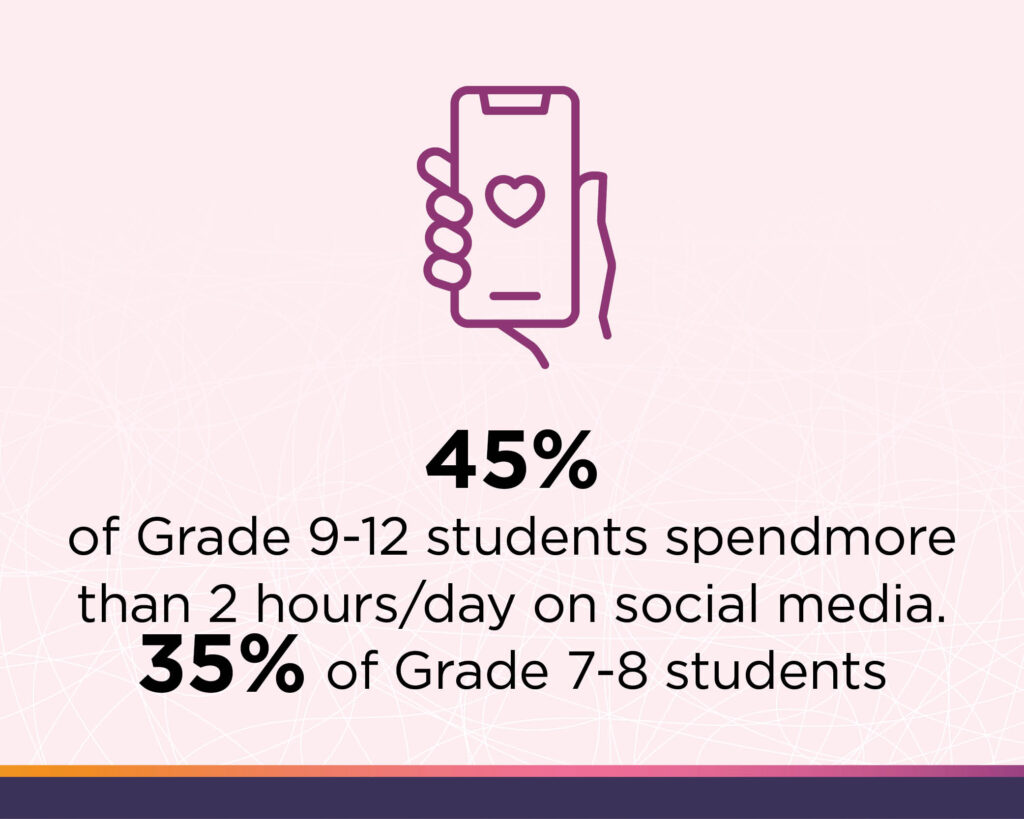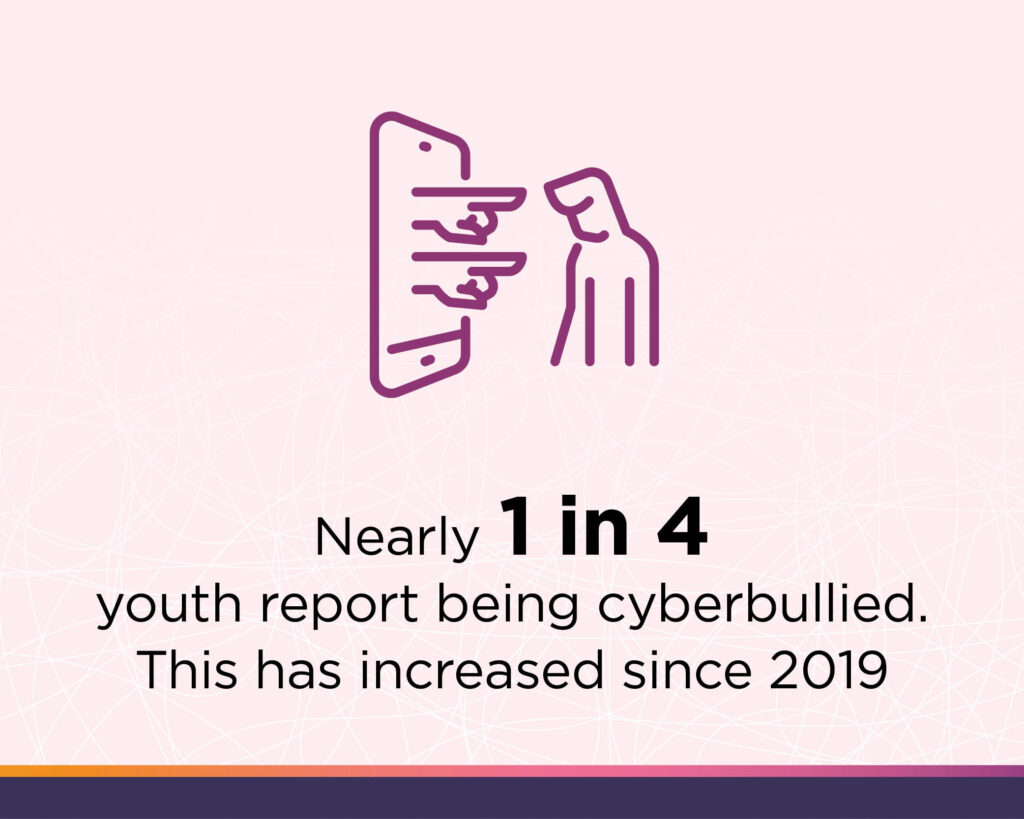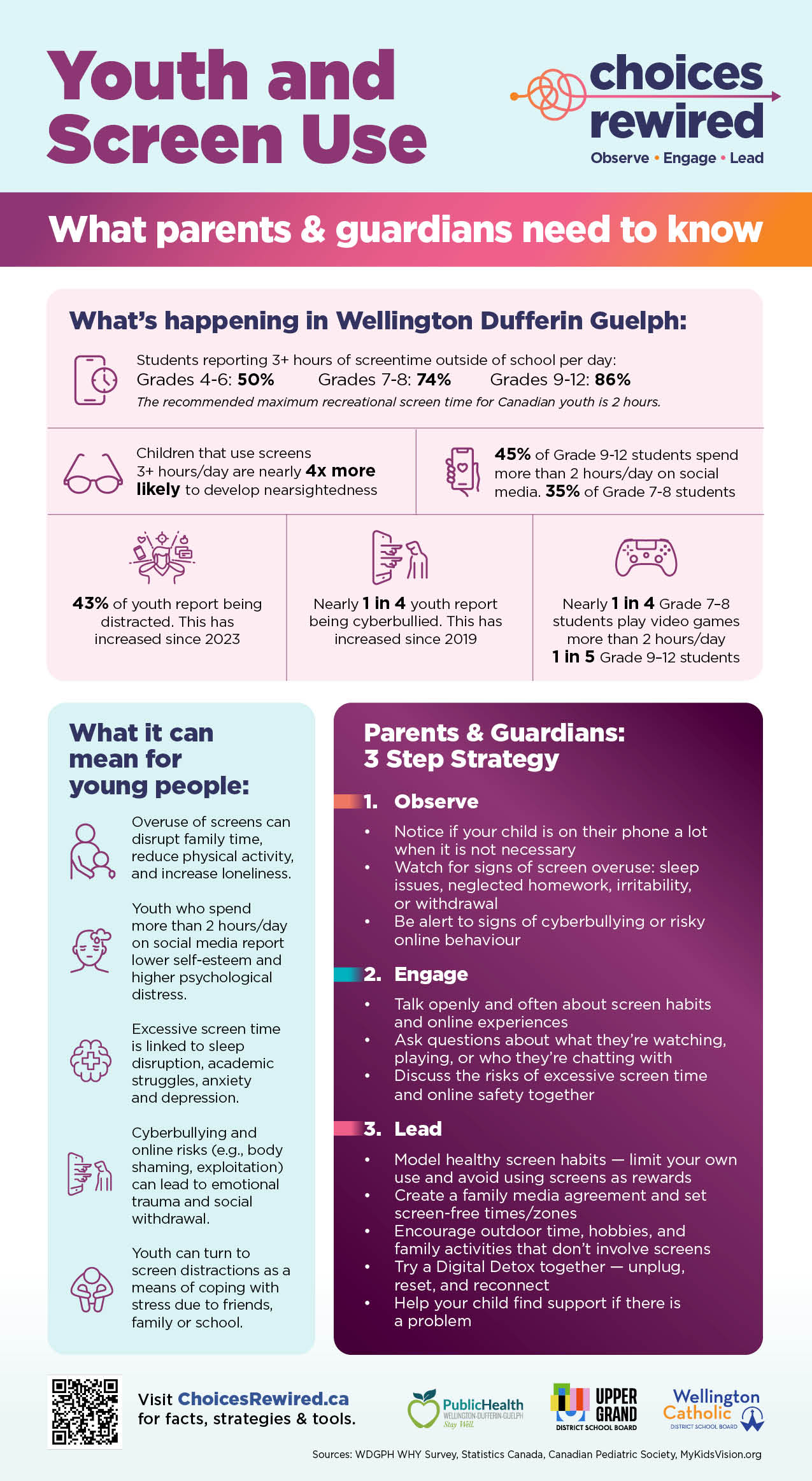Youth and Screen Use in Wellington-Dufferin-Guelph
Youth in our region are spending more time on screens than ever. Eighty-six percent of high school students report spending more than 3 hours per day, and more youth report online gaming, being cyberbullied and being distracted.
Watch these informative videos to learn more about youth and screen use in Wellington-Dufferin-Guelph.
Youth in Wellington-Dufferin-Guelph report spending more than three hours per day in recreational screen time, far above the recommended two-hour limit. Forty-three per cent of youth report being distracted, and nearly 1 in 4 have experienced cyberbullying.
The risks of too much screen time can be significant. Excessive use is linked to sleep disruption, poor academic performance, increased nearsightedness, and mental health challenges. Social media, gaming, and other online activities may lead to risks of body shame, exploitation, emotional distress and isolation in youth.
Some of the reasons youth may engage in problematic screen use:
- Coping with stress from school, family, or relationships.
- Peer pressure and fear of missing out.
- Dealing with loneliness, isolation or low self-esteem.
- Lack of boundaries or rules around screen usage.
- Lack of alternative extra-curricular or family activities.
- Highly addictive design of digital apps and games.
- Modeling behaviour they see at home.
Three action steps for parents and guardians to support youth with choices around screen use:
Observe
Watch for signs that screen use may be problematic:
- Sleep disruption or fatigue.
- Mood changes, irritability, or withdrawal.
- Neglected homework or extracurriculars.
- Secrecy around devices or online activity.
- Signs of cyberbullying or risky behaviour.
Engage
Talk openly and often about screen habits. Use supportive language and ask questions like:
- “What do you enjoy most about your favourite app or game?”
- “Have you ever felt overwhelmed by social media?”
- “Are you or people you know experiencing cyberbullying?”
- “What would you like to do more of to help you stay offline?”
- “Do you know what to do if something online makes you uncomfortable?”
Discuss the risks of excessive screen time and online safety. Collaborate on a family media agreement that sets expectations and boundaries.
Lead
Set an example and demonstrate your commitment to supporting your child:
- Model balanced screen use.
- Avoid using screens as rewards.
- Create screen-free zones (e.g., bedrooms, dinner table, family outings).
- Schedule regular Digital Detox days.
- Prioritize offline activities and quality family time such as board games, creative projects, outdoor time, sports, or arts.
- Set goals together and support gradual behaviour changes.
To access the Code of Conduct for your child’s school, visit the school directory or contact the school directly:
Additional Resources - Youth and Screen Use
- Wellington Dufferin Guelph Public Health Well-Being and Health Youth (WHY) Survey
- Healthy Screen Use
- Canadian Paediatric Society Digital media: Promoting healthy screen use in school-aged children and adolescents
- School Mental Health Ontario: Helping Your Child Manage Digital Technology (PDF)
- School Mental Health Ontario By Your Side Webinar Series
- Canadian Association of Mental Health – Youth and Problem Gambling
- K-12 Ontario Cyber Awareness Month Resources and Parent Handbook
- MediaSmarts – Cyberbullying
- Bullying Canada
- Ontario Bullying Prevention
- Protect Kids Online
For links to additional resources or to find help with mental health or addiction concerns, visit the Support page.






